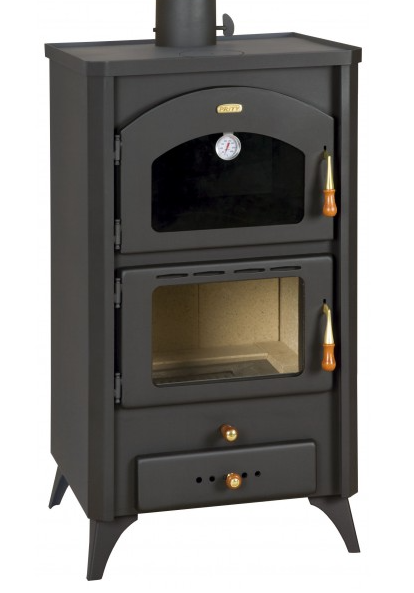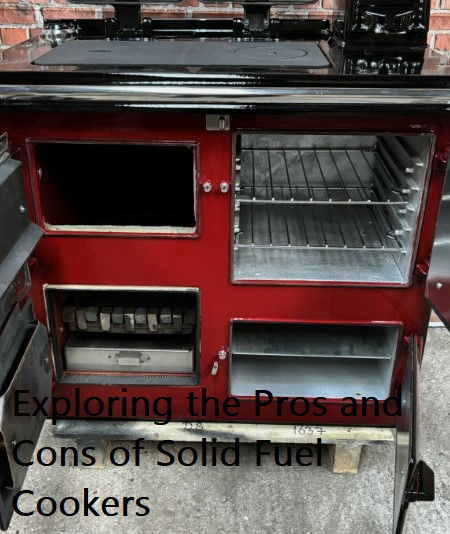Exploring the Pros and Cons of Solid Fuel Cookers: When it comes to conventional cooking appliances, solid fuel cookers are still relevant because they provide a special fusion of useful practicality and rustic appeal. Although many modern kitchens are equipped with electric and gas burners, aficionados still have a particular place in their hearts for solid fuel cookers. Let’s examine the benefits and drawbacks of these classic appliances.
Pros:
Versatility: Wood, coal, and biomass are just a few of the solid fuels that solid fuel cookers may burn with great versatility. Because of its adaptability, users can select fuels according to availability, price, or personal taste.
Independence: You don’t need a gas or electrical source while using a solid fuel cooker. This autonomy can be quite helpful, particularly in remote locations or during blackouts. It guarantees that even in the absence of other energy sources, you can heat your house and prepare food. Energy Efficiency: Solid fuel cookers have the potential to be extremely energy-efficient when used correctly. They cook food using the heat produced by burning solid fuels, which lessens the need for conventional energy sources and may result in decreased utility costs. Enhanced Flavor: A lot of foodies vouch for the distinct flavor that solid fuel cookers deliver. Cooking food over hot coals or an open flame can give food a deep, smokey flavor that is difficult to achieve with other cooking techniques. Ambience: In addition to being quite useful, solid fuel cookers give any kitchen or living area a warm, inviting atmosphere. Cooking can be made more delightful by the sight and sound of crackling flames, which can inspire sentiments of warmth and reminiscence.
Cons:
Maintenance: To guarantee optimum performance and safety, solid fuel cookers need to have regular maintenance. This include clearing out soot and ash accumulation, looking for deterioration, and periodically changing components like grates or seals. Improper maintenance of the cooker may result in reduced effectiveness and possible safety risks.
Starting Price: In comparison to regular gas or electric stoves, solid fuel cookers typically entail greater initial costs. To add to the initial outlay, installation could also call for specific knowledge. But it’s important to take into account these products’ longevity as well as the long-term energy bill savings. Learning Curve: Those who are used to gas or electric stoves may find that using a solid fuel cooker takes some getting used to. Since current solid fuel cookers give far more precision than their solid fuel ancestors, controlling temperature and heat dispersion takes practice and attention.
Impact on the environment: Although solid fuels are sustainable energy sources, improper combustion can emit toxins and worsen air quality problems. Utilizing premium fuels and employing conscientious burning practices are essential for reducing the negative effects on the environment. Space Requirements: Since solid fuel cookers are typically bulkier and larger than conventional stoves, a substantial amount of space in the kitchen or living room is needed. For people with smaller homes or less space for appliance placement, this could be a restriction.
In summary, solid fuel cookers are appealing to a certain audience because they present a distinct set of benefits and problems. They might not fit in every kitchen, but for those who value traditional cooking, their adaptability, independence, and classic appeal make them an attractive option. A solid fuel stove has the potential to become a treasured focal point of any house with the right upkeep and thought.


